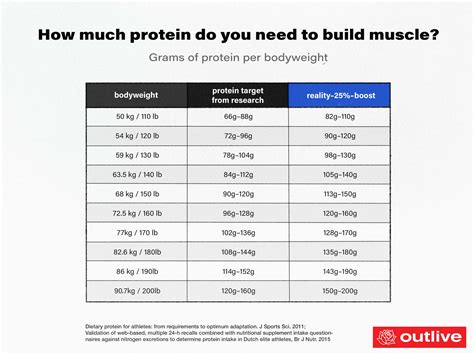How Much Protein Per Day To Gain Muscle? Your Ultimate Guide
Gaining muscle mass is a common fitness goal, and a crucial element in achieving it is consuming enough protein. But how much protein do you really need to fuel muscle growth? This comprehensive guide will break down the science, offer personalized recommendations, and help you optimize your protein intake for maximum muscle gains.
Understanding the Role of Protein in Muscle Growth
Protein is the building block of muscle tissue. When you engage in resistance training, you create microscopic tears in your muscle fibers. Your body then uses protein to repair and rebuild these fibers, resulting in muscle growth (hypertrophy). Without sufficient protein, this repair process is hindered, limiting your muscle growth potential.
The Science Behind Protein Synthesis
Protein synthesis is the process by which your body builds new muscle protein. This process requires adequate amounts of essential amino acids, the building blocks of protein. Consuming enough protein ensures your body has the raw materials it needs to efficiently build and repair muscle tissue. A deficiency in essential amino acids can significantly slow down or even halt muscle growth.
How Much Protein Do You Need Daily?
There's no one-size-fits-all answer. The optimal daily protein intake for muscle growth depends on several factors:
1. Your Training Intensity and Volume:
- High-Intensity, High-Volume Training: Individuals engaging in intense workouts requiring significant muscle breakdown will need a higher protein intake to support recovery and growth. We're talking about multiple weight training sessions per week with high reps and sets.
- Moderate Training: Those with a moderate training regimen will require less protein than individuals with high-intensity training.
- Beginner to Intermediate Lifters: Typically benefit from a slightly higher protein intake as their bodies adapt to the training stimulus.
2. Your Body Weight and Composition:
Generally, a higher body weight necessitates a higher protein intake. However, body composition also matters. Leaner individuals may require slightly more protein per pound of body weight compared to individuals with a higher body fat percentage.
3. Your Goals:
Are you aiming for rapid muscle growth, or are you focused on maintaining your current muscle mass? More aggressive muscle growth goals generally require a higher protein intake.
General Recommendations:
While individual needs vary, general guidelines suggest the following daily protein intake for muscle growth:
- Sedentary Individuals: 0.8 grams of protein per kilogram of body weight (0.36 grams per pound).
- Active Individuals: 1.2 to 1.6 grams of protein per kilogram of body weight (0.55 to 0.73 grams per pound).
- Strength Training Individuals: 1.6 to 2.2 grams of protein per kilogram of body weight (0.73 to 1 gram per pound).
- Competitive Bodybuilders: May require even higher protein intakes, potentially exceeding 2.2 grams per kilogram of body weight.
Important Note: These are guidelines, not rigid rules. Experimentation and monitoring your progress are crucial.
Optimizing Your Protein Intake for Muscle Growth
Simply consuming enough protein isn't enough; you need to consume the right protein at the right times.
Protein Timing:
Consider distributing your protein intake throughout the day, consuming some protein at every meal. This helps maintain a consistent supply of amino acids for muscle protein synthesis.
Protein Sources:
Choose a variety of high-quality protein sources, such as:
- Lean Meats: Chicken breast, turkey, lean beef
- Fish: Salmon, tuna, cod
- Eggs: A complete protein source
- Dairy: Greek yogurt, cottage cheese, milk
- Legumes: Lentils, beans, chickpeas
- Plant-Based Proteins: Tofu, tempeh, soy
Tracking Your Progress and Adjustments
Monitor your progress by tracking your weight, body measurements, and strength gains. If you're not seeing the muscle growth you desire, you may need to adjust your protein intake slightly upwards. However, significantly increasing your protein intake without adjusting your training or other dietary habits may not yield additional muscle growth. Consulting with a registered dietitian or certified personal trainer can provide personalized guidance.
By following these guidelines and adapting them to your specific needs, you can optimize your protein intake and significantly enhance your muscle growth journey. Remember consistency and proper training are just as vital as sufficient protein!
